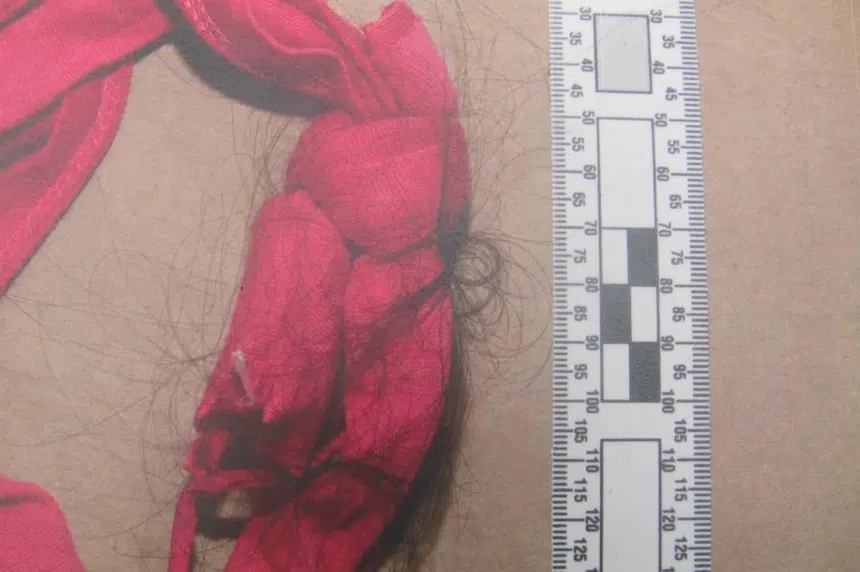Questions still linger over the Goforth case and how two little girls came into such dire straits.
On Saturday, a jury found Tammy Goforth guilty of second-degree murder, and her husband Kevin guilty of manslaughter, in the death of a four-year-old; both were found guilty of unlawfully injuring a two-year-old in their care.
It was asked throughout the trial about the role Social Services played in the case.
“I think I stated objective facts about how Social Services attempted to deflect responsibility for how they treated these children throughout their young lives” Noah Evanchuk, Kevin Goforth’s lawyer, told reporters outside the courthouse on Saturday.
The two girls were malnourished, dehydrated and covered in bruises when they were taken to hospital Aug. 1, 2012. They had been in the care of the Goforths since November 2011.
Prior to that, the two girls had been placed in nine different foster homes in the space of two years.
After the verdicts were read, a family member stated, “Social Services failed them”.
The Goforths were deemed by Social Services to be “persons of sufficient interest” (PSI). That classification meant social workers didn’t have to check up on the children and if asked, the couple could refuse a visit.
Since the death of the four-year-old, that has now changed.
It is now required that social workers perform monthly checks on the homes of anyone classed a PSI once a month for the first six months and after that reviewed on an annual basis.
Those changes are something Saskatchewan Children’s Advocate, Bob Pringle, has been following.
“That’s a significant improvement because the assessments were poor and children were forgotten,” said Pringle. “We believe the year is too long, it should be a quarterly review.”
But Pringle added these changes will only make a difference to the system if the new rules to check on PSI homes every month are being followed.
“Because compliance is often an issue.”
The mother of the girls in the Goforth case has launched a lawsuit against the Ministry of Social Services that remains before the courts.







